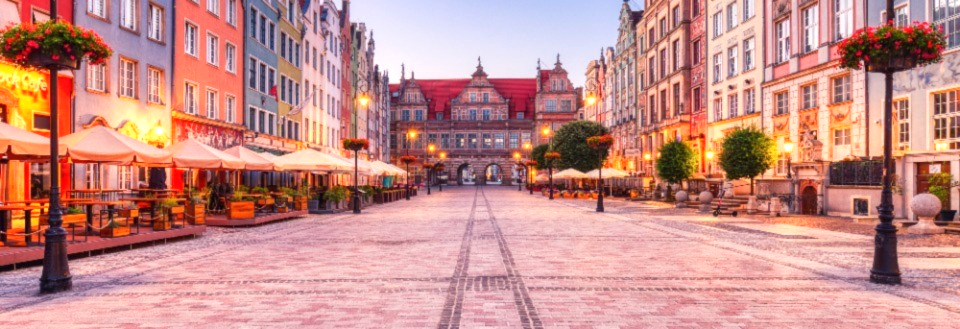Martinique's connection with France is obvious - through language, wine, food and the fashionable boutiques - yet despite this the island is clearly unique. The fact that this tropical paradise is located at the outer edge of the Caribbean lends the island a climate, nature and a culture to be found nowhere else.�
Departement de la Martinique
Fort-de-France
1,000 km2
French, but also the dialect creole patois is spoken on Martinique
Roman Catholicism
414,516 (2000)
French departement
Martinique is a tropical volcanic island in the northern Caribbean. There are high mountains and large volcanoes in the north, whereas the southern parts of the island are covered with sugar cane. There are beaches with black, white and mixed sand, but no matter what colour the sand has, it leads to beautiful turquoise water, which is pure and inviting.
Autumn is the rainy season on Martinique, which otherwise is a pleasant tropical destination offering a high temperature all year around. From mid-July to mid-October is the peak season of hurricanes, and during this period it can be very dangerous to visit the island - even though Martinique has avoided the worst of the storms of the past few years.�
Lonely Planet Eastern Caribbean
French Franc, 1 franc = 100 centimes
There are several Internet connections on Martinique but a small number of Internet cafés. Many hotels have access to the Internet, and it is possible to get on the Net in the hotels for a fee.�
The police (17)
The fire service (18)
Medical attention (71 59 48)
In restaurants and hotels, a tip of approximately 10 per cent is appreciated. Normally, tips are included in the bill, however the waiters expect a little extra for their service.
When the time is 11.00 in Britain, it is 06.00 on Martinique.
Weight: kilo
Temperature: degrees Celsius
Distances: kilometres
Cubic content: litre
To avoid offending the inhabitants, ask for permission before taking photographs of them.
The drinking water is highly chlorinated but relatively safe to drink, especially in city areas. Sensitive stomachs may have problems with the high content of chlorine, therefore mineral water is sold almost everywhere.
220 v AC, 60 Hz
The shops are open from 8.30 to 18.00 (Monday-Friday) and from 8.30 to 13.00 (Saturday).
The banks are open from 7.30 to 12.00 and from 14.30 to 16.00 (Monday-Friday).
There are both French and Caribbean features in the Martinique kitchen. The easy access to seafood is visible in the food, which is mainly fish and shellfish. Because of the tropical climate, deserts often include lots of exotic fruit. France provides the wine, but the local rum is an interesting alternative - especially mixed with lime-juice, bitter and syrup, which turn it into the local punch.
�
On Martinique there are not many facilities for the disabled. It is important to phone ahead concerning the facilities in hotels and on public transport.�
New Year's day, 1st January
1st may
V-E Day, 8th May
The Bastille Day, 14th July
Assumption, 15th August
All Saints Day, 1st November
Christmas Day, 25th December
Easter Sunday, March or April
Ascension Day
Whit Monday
It is possible to camp almost everywhere on the island. In the mountains, on the beaches and in the forests are camping sites with more or less developed facilities. If you want to avoid having to bring a tent, it is also possible to rent a tent or caravan.�
On Martinique there are more than 3600 hotel rooms in 90 hotels, which means plenty of hotels to choose between.
There are numerous Bed & Breakfast on Martinique. Guesthouses are run by local families from an organisation called les Relais Creoles. Moreover, private accommodation is organised by several organisations such as Gites de France, Martinique or Logis Vancances Antilles.
There are a few youth hostels on the island. Examples are one outside the centre of Fort-de-France, and one in le Morne-Rouge.�
Houses and flats can be rented all over the island. It is in fact also possible to rent a private island.
Air Martinique lets out airplanes and helicopters for hire. However, the island is so small that air transportation is rarely necessary.
Minibuses called taxico or TC (taxi collectif) go all over the island. In certain region there are also local buses.
There is no railway on Martinique.
On Martinique there are approximately 200 cabs at a reasonable price. The rate almost doubles between 20.00 and 06.00. �
There is car rental at several places on the island, which also rent scooters and mopeds. To rent a car on Martinique you have to be 21 years old and have at least one year driving experience.�
Ferries leave from Fort-de-France to Pointe du Bout, and from Anse de l'Âne to Trois-Ilets.
